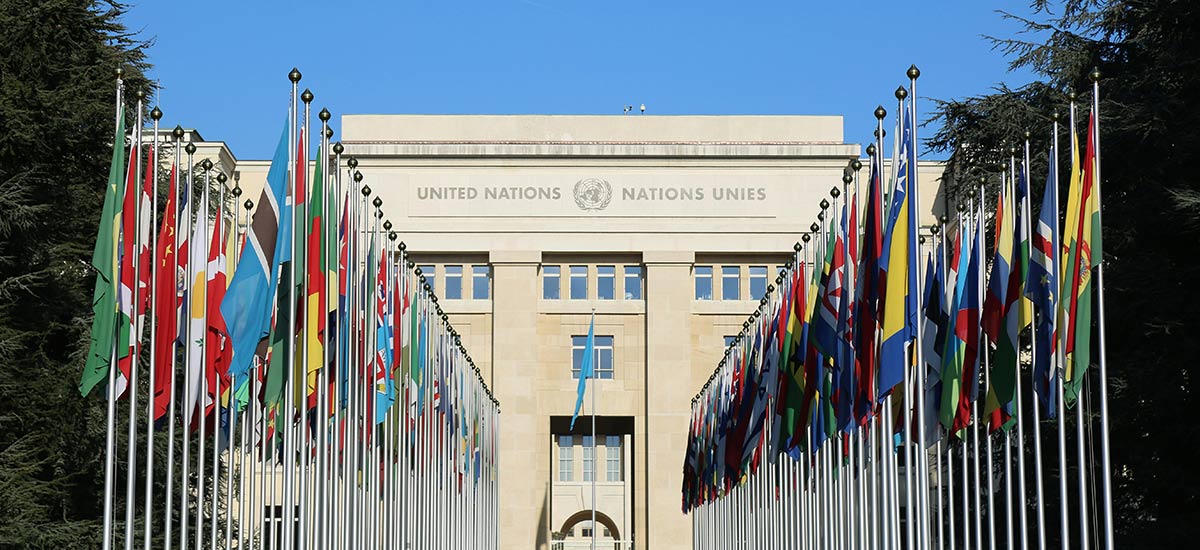At the United Nations Summit of the Future, which took place from 22-23 September 2024, world leaders adopted the Pact of the Future and, with that, the Global Digital Compact (GDC) in its annex.
After years of consultations, governments—with limited input from other stakeholders—have negotiated and finalized the GDC, which outlines the United Nations’ commitment to a multistakeholder approach that upholds each stakeholder’s respective roles and responsibilities in advancing an inclusive, open, and secure digital future.
How Does the Global Digital Compact Align with Other Initiatives?
The GDC is one proposal from UN Secretary-General Antonio Guterres’ Our Common Agenda (OCA), which is a set of proposals and actions dedicated to accelerating the implementation of existing agreements to address current and future challenges. The document has a particular focus on accelerating the achievement of the Sustainable Development Goals.
The GDC aligns with the OCA objectives by outlining several commitments clearly linked to the Sustainable Development Goals.
At the same time, the GDC incorporates the World Summit on the Information Society (WSIS) outcomes as one of its main references, offering stakeholders an opportunity to collectively consider their priorities ahead of the WSIS+20 review in 2025.
While the GDC offers many proposals and commitments regarding our digital future, it emphasizes the opportunities for its alignment with the WSIS processes without making any prejudgments or mandates for the WSIS. It invites stakeholders to consider how to build on the WSIS processes—including the Internet Governance Forum and its national and regional initiatives—in consideration of GDC commitments, such as those on digital public infrastructure and data governance.
The Need for Greater Stakeholder Inclusion
While we recognize that the GDC places multistakeholder cooperation at the center of its principles, throughout the preparations, we were concerned by the delayed and limited communication with non-governmental stakeholders, who could not readily access the various revisions of the GDC or participate in the numerous informal consultations and deep-dive discussions organized by the co-facilitators.
We see an opportunity here to have more robust multistakeholder engagement that goes beyond preliminary consultations to truly fulfill the spirit of the GDC and more transparency on how those contributions have been utilized in shaping it. For example, the NETmundial+10 outcome document outlines best practices on how to implement multistakeholder processes that enable all stakeholders to share their expertise.
In particular, members of the technical community have strong expertise based on a common understanding of what the Internet needs to exist and thrive as a force for good in society, in line with many of the GDC commitments, which should be further leveraged in implementation.
Despite the references to multistakeholder cooperation, we are disappointed to see the diminished language as it pertains to multistakeholderism throughout the text and the inclusion of “enhanced cooperation” under the Internet governance section, which does not enjoy a universally recognized definition.
For instance, in the follow-up and review section, we only see references to multistakeholder cooperation as it pertains to the endorsement of the GDC for the implementation and achievement of its objectives. Our concerns remain as there is no clarity on the roles and responsibilities of each of the stakeholders in the implementation of the GDC commitments.
Defending the Multistakeholder Model
Our work does not end here; we will continue our advocacy at this year’s World Telecommunication Standardization Assembly (WTSA-24) and Internet Governance Forum (IGF-24) as we prepare for the WSIS+20 Review next year!
The Internet Society will continue advocating for preserving the multistakeholder approach to Internet governance. We will also uphold the technical community as trusted and expert partners through our continued engagements and collaboration with our community and partner organizations.

